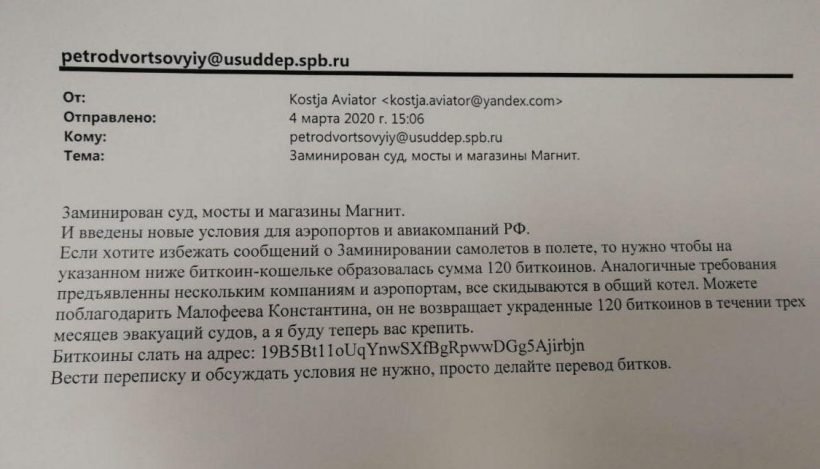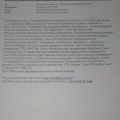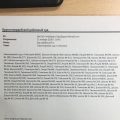Extorting 120 BTC «client of the WEX cryptocurrency exchange» presented new demands to governmentinstitutions of the Russian Federation and now threatens the mining of airports and airlines. This is stated in a letter sent to the Petrodvorets District Court of St. Petersburg on March 4.

«If you want to avoid messages aboutIf airplanes are mined in flight, then it is necessary for the amount of 120 bitcoins to be formed in the Bitcoin wallet indicated below. Similar demands have been made to several companies and airports, and everything is being thrown into a common pot. You can thank Konstantin Malofeev that he did not return the stolen 120 bitcoins during three months of evacuation of ships»,- wrote an unknown person.
Since the beginning of this week, at least two passenger aircraft have made an emergency landing due to received letters of mining. Whether they are directly related to the ransomware of bitcoins is not reported.
In December 2019, an unknown person transferred «miner» 0.00036020 BTC. Part of this amount was spent, the current wallet balance is 0.00006666 BTC.
A series of mines in the territory of the Russian Federationstarted in November 2019, shortly after the publication of the BBC’s investigation about the possible involvement of businessman Konstantin Malofeev and the FSB in stealing the funds of users of the WEX cryptocurrency exchange (BTC-e successor) for a total of $ 450 million. An unknown “miner” demanded to pay him 120 BTC stolen from exchanges.
Various sources suggest that the "miner"there may be a real client of the site from Kiev, and even the team of Malofeev himself, who is thus trying to discredit WEX users and terminate the proceedings on the theft of funds in the legal field.
To suppress the activities of the “miner” RoskomnadzorAt the request of the FSB, he blocked the email services StartMail and ProtonMail, which he used in the mailing. ProtonMail later conducted its own investigation and deleted mailboxes associated with the attacker.
However, after this «miner» switched to various disposable email address services.




